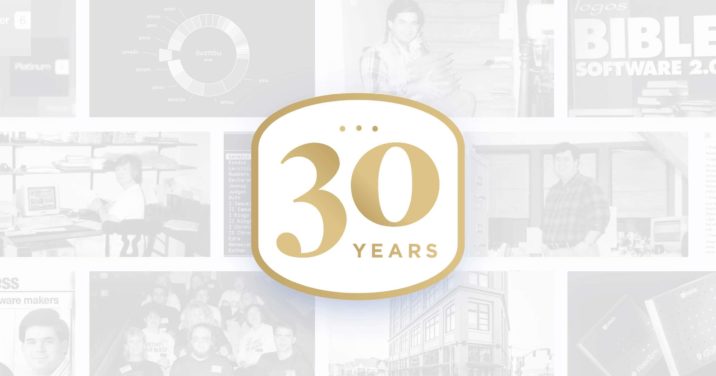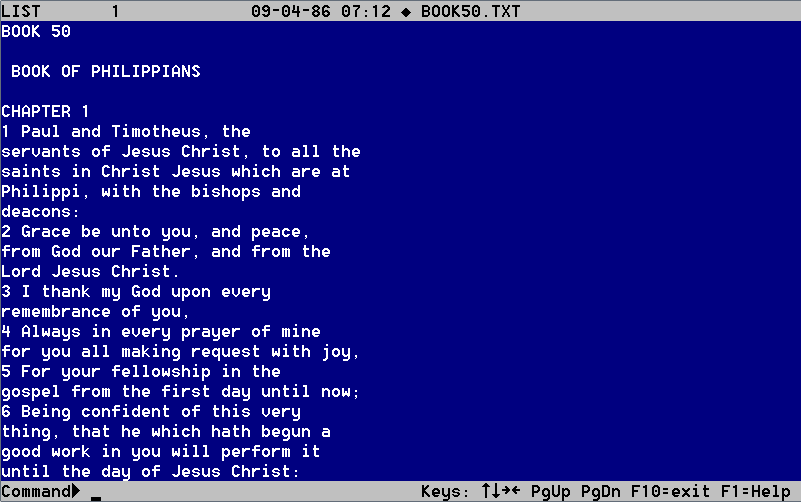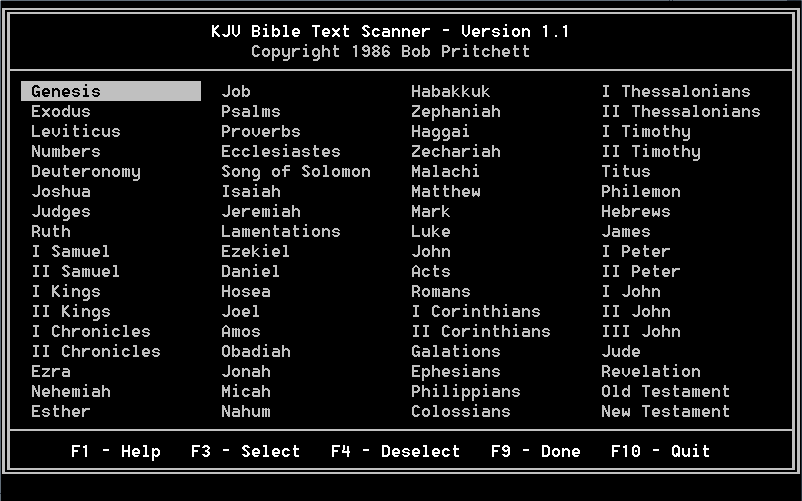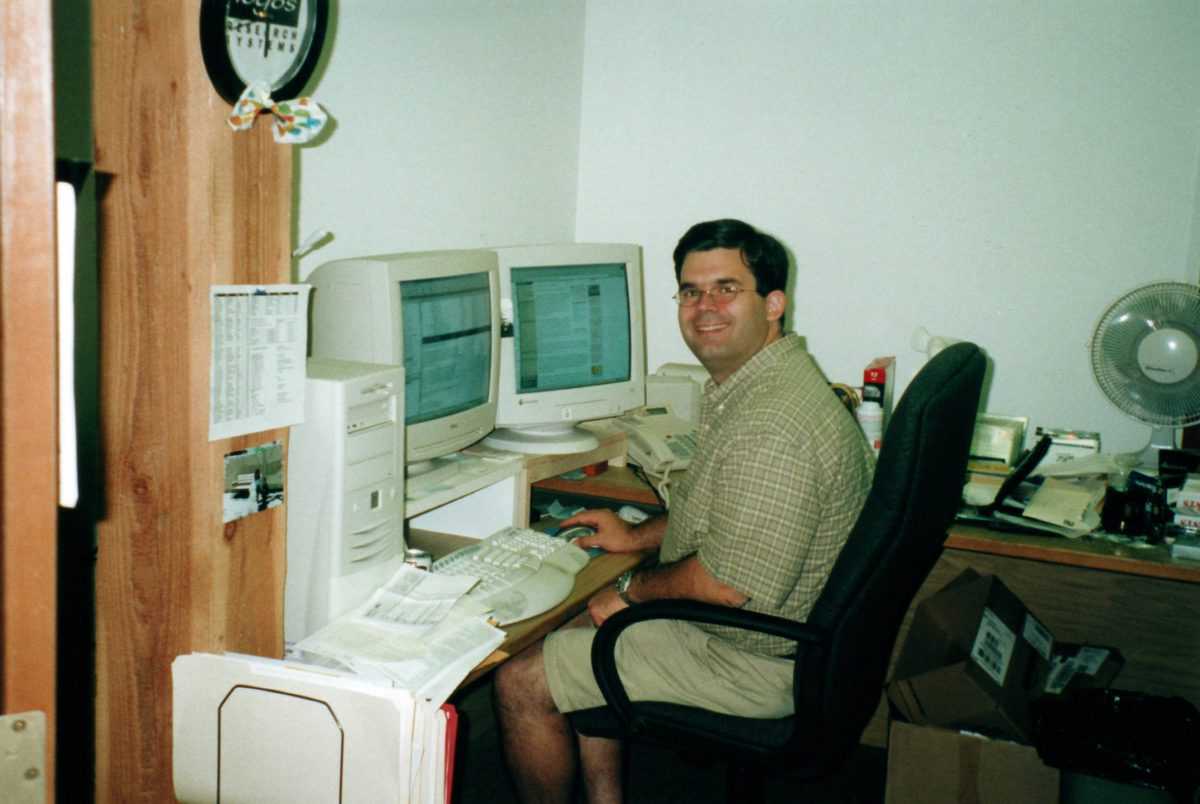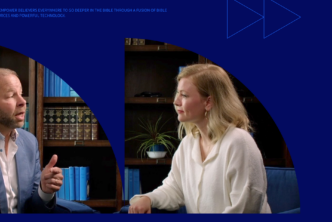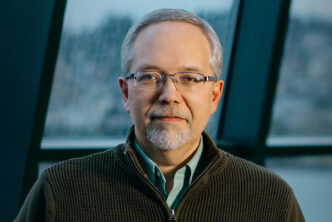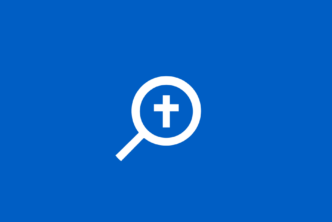Decades ago, a mother taught her son how to study the Bible. As the boy grew older, his love for studying the Word grew—and so did his Bible class homework. His Bible study required using the large and heavy Strong’s Concordance, Nave’s Topical Bible, and other thick books. But he found these inconvenient and wondered if a computer could make it easier to look things up.
So at age 15, after finding the text of the King James Bible on a BBS (“online” before the internet), he created a simple MS-DOS software program for searching the Bible.
When this “freeware” program began to be distributed with the Bible text files, users started asking for more—and that sparked an idea. The programmer and a friend from church (also a coworker at Microsoft) went out to lunch and came back with the decision to write a new Bible software program for Microsoft Windows 3.0.
Many long nights and working weekends later, Logos Bible Software launched in January 1992. Bob Pritchett and his friend Kiernon Reiniger quickly saw how many others loved the Word and had wished for a way to make its study more accessible and portable—who saw how technology could help equip the Church and its people.
Serving the Church from the beginning
Early Logos user Dr. Jonathan Seda shared this in the summer 1992 Logos News newsletter:
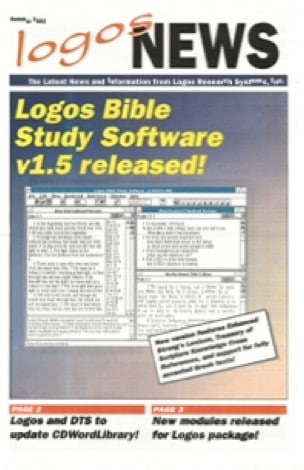
But not until I saw Logos Bible Study Software advertised in Christianity Today did I know that Windows Bible study software had arrived. I bought it immediately, and I’m very glad that I did.
Logos has exceeded my expectations! It is an excellent Windows application. It interfaces beautifully with other Windows programs. It is so well done that it looks like it came from Microsoft itself! I like the fact that it can be used by laymen and serious scholars alike. You can add as few or as many texts as you like—why, I could even have 4 different Greek versions side by side to compare if I chose to. I have several church members ready to buy Logos since I have told them how much I like it, and I’ve recommended to our local bookstore that they carry it.
At the time, Dr. Seda was pastoring at Grace Church in Dover, Delaware, and using Logos on floppy disks. He pastored at Grace Church until 2019, and he still serves there as an assistant pastor. Throughout these years, he’s been faithfully feeding the flock gospel truth and using Logos as a tool to explore Scripture.
In a way, the Logos software grew and improved alongside his church. Seda told us recently about an upgrade he particularly remembered:
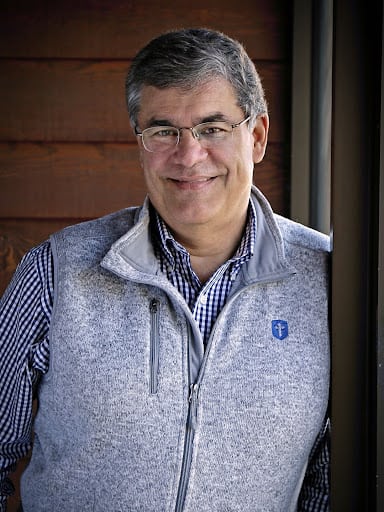
With the help of his favorite features like the Exegetical Guide, Passage Guide, and Text Comparison, he’s been able to dig deeper one click at a time instead of pulling down and rifling through volume after volume.
Bible software without borders
Other pastors from all over the United States and around the world have employed Logos in a similar way to Seda.
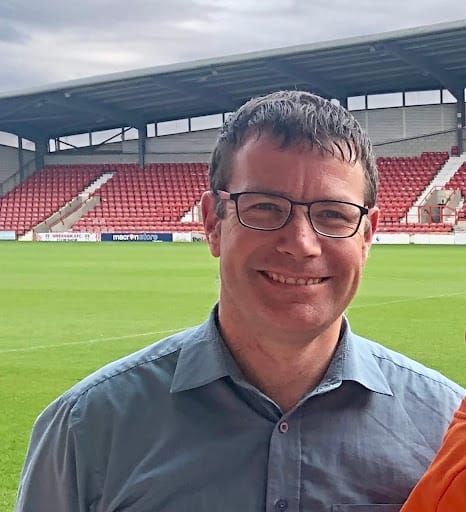
He recalls all the responsibilities of leading a church, leading a family, and preaching Sunday morning, Sunday night, and Wednesday night. To help him prepare solid Christ-centered sermons, he created his own custom sermon preparation workflow in Logos.
We asked him, “Did Logos’ help with sermon prep give you more time to take care of the rest of ministry?”
He answered, “I think it just made my life possible. . . . I genuinely just can’t see how I could have preached three times a week were it not for Logos.”
And he didn’t want to leave our interview without mentioning Logos’ community through the forums, where he’s made friendships lasting over 10 years. He says, “There’s a real kind of warmth and friendship and genuineness—people wanting to help other people study the Bible, preach better sermons, and love the Lord more, and that community would not exist if it wasn’t for Logos Bible Software.”
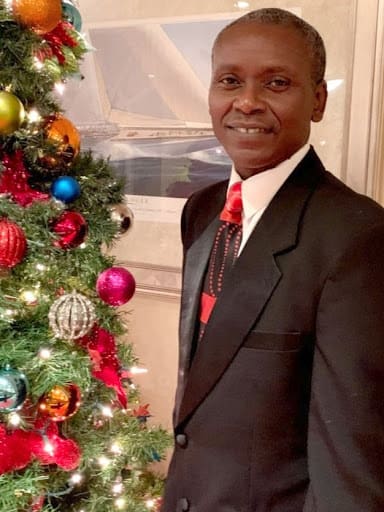
Because of Logos, Williams has been able to gather—and conveniently use—thousands of resources. He told us:
My library is at 17,785. Can you imagine trying to box all of those if I had to move? With Logos, everything is right on the same laptop that I have in front of me. And that’s what I like about it. It’s convenient. I can study on my phone. I can read whenever I’m ready. I can study in the car if I’m waiting on someone.
As a whole it helps me better prepare for the messages I deliver to people and my interacting with them. When I find resources, I’m a better teacher and preacher because of the information that I have. It has been a blessing to me. I still wonder how a person manages without it.
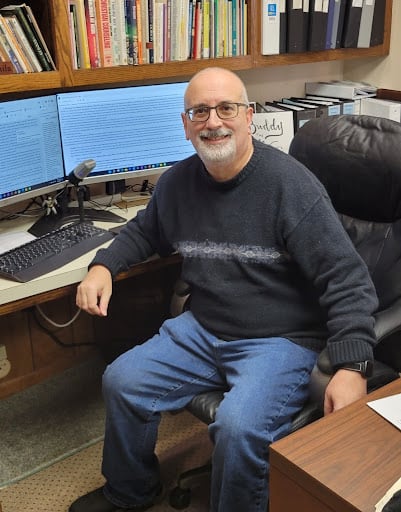
He says, “The more I got into Logos, the more I just loved it.” He prepares sermons in Logos by reading the text in multiple versions with the Text Comparison Tool, exploring word meanings with the Exegetical Guide (e.g., that “cling” in Romans 12:9 means “being glued to”), and then clicking through to several commentaries.
Beyond the pulpit
Katie Orr is a Bible teacher and small group leader. She says,
Logos has opened up a world of solid biblical resources. It’s a staple in my regular rhythms of Bible study and supports me as I complete writing projects, craft talks for women’s ministry events, and produce teaching videos for my online ministry. (Not to mention all the time and money I saved using Logos throughout my seminary work!)
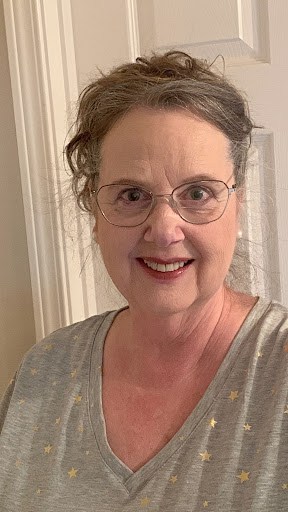
When I got Logos, it was amazing to be able to just click, click, click and have everything laid out. And it’s just been a huge time-saver. You can learn so much more so quickly and you can cover so much more territory faster. Logos has been one of the biggest blessings in my life . . . it helps me do what my heart wants to do for the Lord. And it’s been fun to play with!
Georgia has created 45 custom layouts: Old Testament, New Testament, different books of the Bible, and many more. Her favorite study is always the one she’s working on at the time, and next she’s creating a reading plan in Logos for a yearlong personal study of Psalms and Proverbs.
To the classroom
Andrew Daw earned his Master of Letters from Trinity College Bristol. He says:
I am not aware of any other research tool with the scope of Logos at its price point, and I have asked around. In my opinion it is the stand-out product for Christians involved in biblical research at all levels. It has really made a difference to me, and I anticipate that it will continue to do so for some time.
Many seminaries (like Dallas Christian College and Dallas Theological Seminary) use Logos on an institutional level, treating it like a required textbook for every student. They see how it can help their students not only save time and money but also continue biblical study throughout their lives.
Around the world
Logos was available in multiple languages even early on, and today Logos offers the Bible in dozens of languages. Speakers of Portuguese, German, Chinese, Korean, Spanish, and French enjoy large resource libraries and full support.
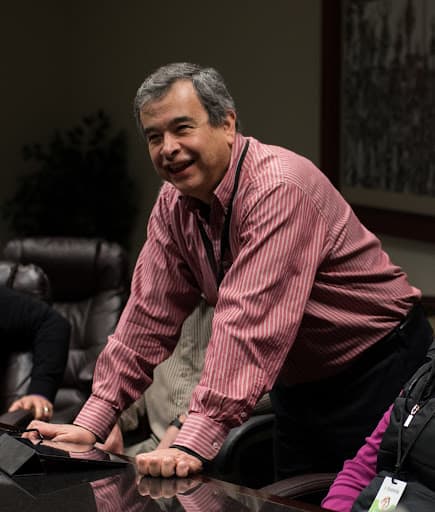
Tony does his job because he loves studying the Bible with Logos, yes, but more than that.
He says:
One of the things that gets me up in the morning is knowing that what I’m doing is actually helping to raise the level of Bible study and Bible knowledge and Bible preparation and preaching for the Hispanic pastors, which will raise the level of biblical education of the congregations. That is very, very satisfying and very fulfilling.
He’s continually grateful to see how the Hispanic people and other Spanish speakers (even from Africa’s Equatorial Guinea) hunger for biblical knowledge.
The heart of it all
At the end of the day (and 30 years), it’s all about equipping the Church to grow in the light of the Bible. Seeing people come to Christ—like the 16-year-old who Pastor Greg Corbin in Birmingham, Alabama, told us about. Or the woman Tony Segar told us about, who shared with her pastor that she sees more of Jesus in his sermons now. Or the women Georgia Schoelz counsels whose lives have been changed by studying and applying God’s Word.
Georgia says the greatest reward of Bible study with Logos is being conformed to the image of Christ, little by little, more and more, day by day.
We agree, Georgia. Here’s to 30 more years of equipping the Church to grow in the light.
***
If you’re interested in reading more about Faithlife’s history, take a look at this page.

